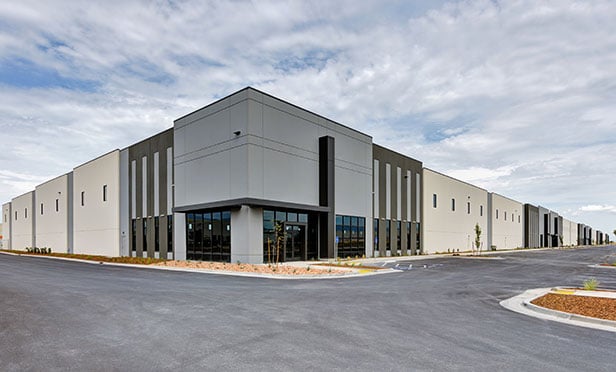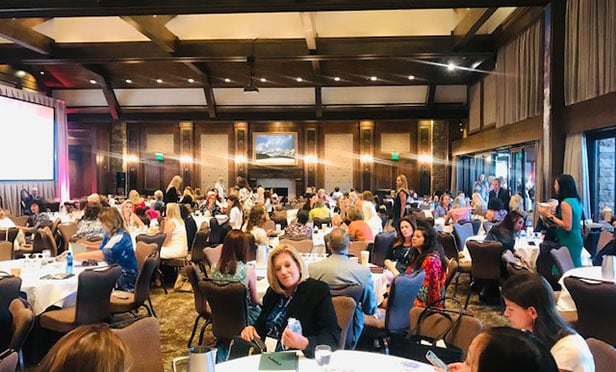At the turn of the century, Goldman Sachs opened a small outpost in the University of Utah Research Park in Salt Lake City. Originally housing a mere 100 workers, the office has proven to be a major launching pad for the investment banking giant's presence in The Beehive State.
By the end of last year, Goldman Sachs' Salt Lake-based workforce had ballooned to 2,700, making it the firm's fourth-largest branch. “What we're finding…is that there's a huge population of people who want the global investment bank experience but don't necessarily want to work in New York or San Francisco,” explains Salt Lake City Office Director of Operations David Lang. “They want the professional experience of working for a global investment bank, but they want the lifestyle associated with Utah.”
While it has certainly helped lead the charge, Goldman Sachs is far from the only company in the process of expanding its operations in Salt Lake. Employment in the city increased by 22.2 percent from 2015 to 2016, a remarkable turnaround from the 0.8 percent labor market contraction that occured between 2013 and 2014. Only Madison, Wisconsin (24.8 percent), and Fort Lauderdale, Florida (23.4 percent), enjoyed larger swings in employment growth during that four-year span.
Salt Lake City's labor market has come back down to earth in recent years, but it continues to grow at a rate of 2.1 percent, markedly higher than the 1.3 percent national average. As things stand, Salt Lake remains an excellent option for companies looking to establish a presence in the Mountain West, expand their national network, or even relocate their corporate headquarters. What follows are but five of the many reasons why.
- A Business-Friendly Environment
The ongoing Amazon HQ2 sweepstakes has put the value of state and local corporate tax incentives into sharp relief, and Utah has demonstrated a willingness to play along. Just this year, Utah County — located immediately south of Salt Lake City — offered Facebook $150 million in property tax incentives to build a data center in Eagle Mountain, UT. In return, Facebook is expected to invest $100 million in road and utility enhancements for Utah County's west side.
In 2017, CBRE ranked Salt Lake the tenth lowest-cost market for doing business based on average wage and rent obligations, and all told, the city promises companies a cost of doing business that is 12 percent lower than the national average.
- Affordable Office Space
As the CBRE rankings highlight, the affordability of office space in Salt Lake City is a major draw for many companies — and in turn, an attractive option for investors looking to buy office properties in a burgeoning market. As of 2017 Q2, the average rent for office space in downtown Salt Lake stood at $25.37 per square foot. Among the major metropolitan areas in the western United States, only Phoenix ($24.11) was cheaper. Hotspots like Seattle ($42.08) and San Francisco ($72.90) were nearly twice and three times as expensive, respectively.
Rents have been kept so reasonable primarily because Salt Lake's office market is expanding so rapidly — its 5.8 percent YOY growth between 2016 and 2017 was its highest rate in more than a decade. In September 2016, the completion of 111 Main Street added nearly 440,000 square feet of rentable office space to the supply.
- A Young, Educated Workforce
The University of Utah and Westminster College are located just outside downtown Salt Lake City, and Neumont University, Brigham Young University, and LDS Business College all maintain satellite campuses in Salt Lake City proper.
This wealth of young, highly educated individuals eager to enter the workforce means companies operating in Salt Lake rarely face the kind of talent shortages that tend to plague aging and/or undereducated cities. In fact, CBRE ranked Salt Lake as the fifth most concentrated millennial market in the nation, and its 8.7 percent 5-year millennial population growth rate is more than triple the 2.6 percent national average.
- Abundant Tech Talent
Salt Lake City's talent pool is not only young and well-educated, but technologically skilled. In addition to its robust traditional higher education infrastructure, downtown Salt Lake is home to a number of Utah's premier coding schools including DevPoint Labs, V School, and Iron Yard. As a result, the city's tech talent pool expanded by 22.2 percent from 2015 to 2016, enough to place third in CBRE's rankings of tech talent momentum. This is not only good news for startups and tech companies that my not be able to afford office space in top tier markets like San Francisco or Seattle; it also bodes well for CRE investors, as startup activity has been linked to commercial real estate growth.
A variety of companies have taken notice of the area's status as a burgeoning tech hub, and the broader Wasatch Front is now home to operations for both big-name tech firms like Microsoft, Adobe, Tesla, and Snapchat, and homegrown startups like Pluralsight and Qualtrics. Clearlink Technologies — the fifteenth largest employer in the city — employs over 450 marketers, technologists, and sales people in Salt Lake City, contributing to the city's 1.3 STEM employment quotient (meaning STEM workers make up 30 percent more of the city's workforce than the national average).
Capitalizing on Salt Lake CRE
Salt Lake City's ongoing transformation into a bonafide tech hub should excite commercial real estate (CRE) investors, especially those primed to take advantage of the city's expanding office and multifamily housing markets. Simply put, as new residents flock to Salt Lake to satisfy companies' ever-increasing demand for top-notch talent, they're going to need places to live.
According to Reonomy's proprietary CRE sales data, multifamily property values in Salt Lake are already on the rise. As total multifamily sales have crept up slowly since 2014, median sales prices have skyrocketed by 52 percent, including a 33 percent YOY increase between 2016 and 2017 alone.
Such impressive growth led PwC and the Urban Land Institute to rank Salt Lake City third on their “U.S. Markets to Watch” earlier this year, proving that The Crossroads of the West is just as compelling as a place to invest in CRE as it is a place to start — or relocate — a company.
Rich Sarkis is CEO of Reonomy. The views expressed here are the author's own and not those of ALM's Real Estate Media.
© 2025 ALM Global, LLC, All Rights Reserved. Request academic re-use from www.copyright.com. All other uses, submit a request to [email protected]. For more information visit Asset & Logo Licensing.







